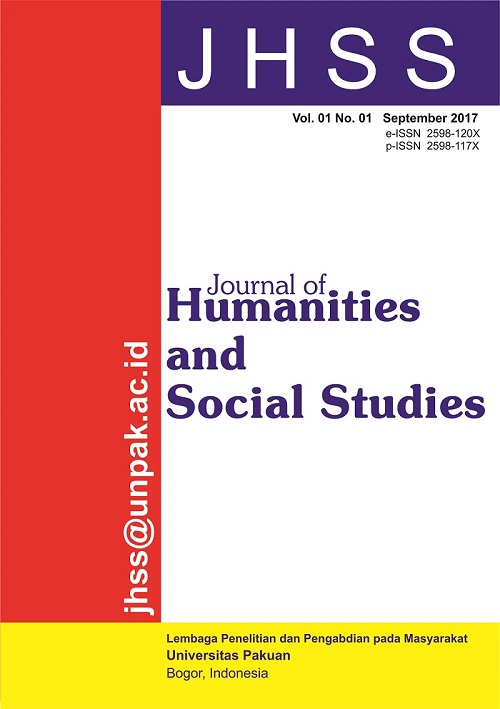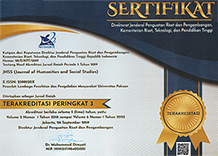User
Information
Keywords
brand image
communication
customer satisfaction
education
employee performance
environment
financial literacy
firm value
implementation
job satisfaction
learning outcomes
organizational commitment
organizational culture
performance
profitability
purchase decision
service quality
social media
strategy
transformational leadership
work motivation
ISSN :
e-ISSN : 2598-120X p-ISSN : 2598-117X

Journal of Humanities and Social Studies is licensed under a Creative Commons Attribution-NonCommercial 4.0 International License.





























